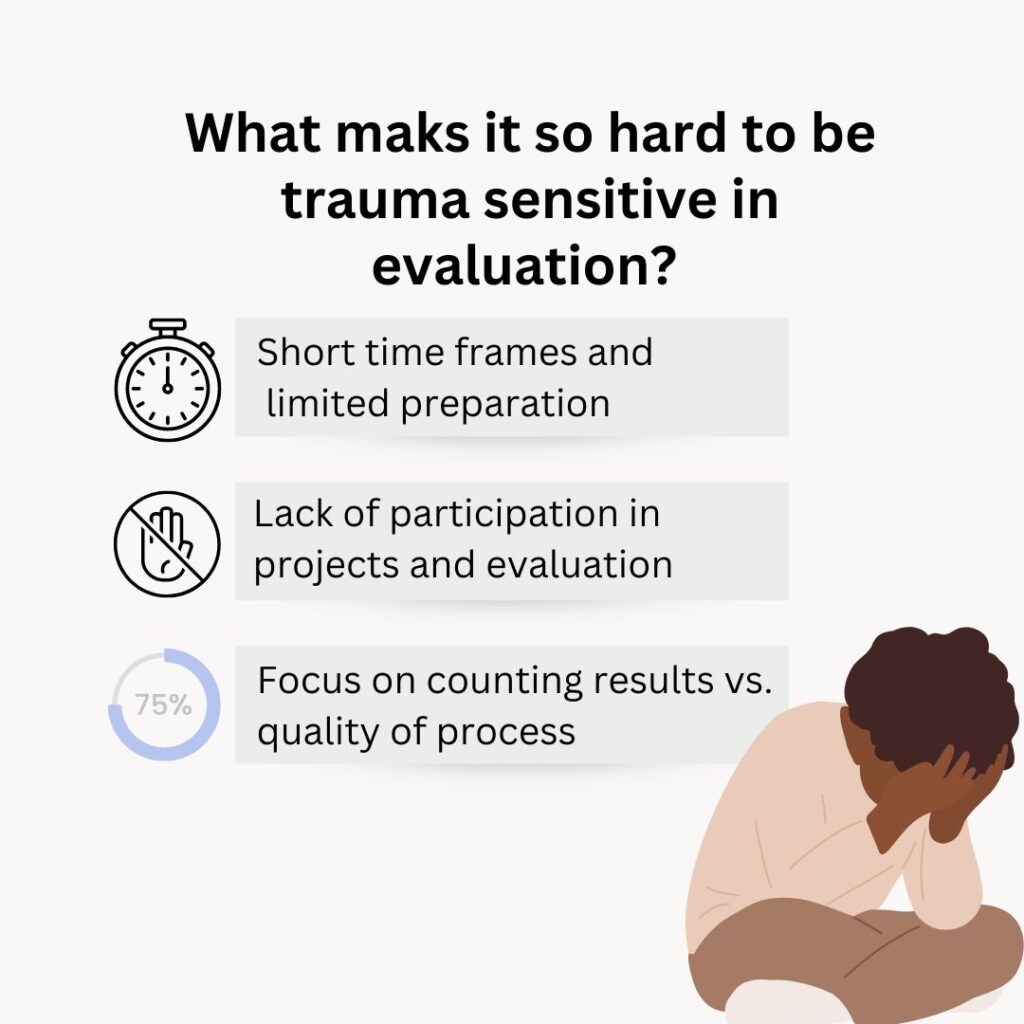
Last year I carried out a review of evaluations of programmes and projects in (post-) conflict contexts that worked with survivors of sexualised and gender-based violence (SGBV). As the evaluation reports tended to yield limited information on the data collection and analysis processes, I interviewed some of the evaluators, focussing on those based in the countries or regions of the interventions. The interviews were extremely insightful, showing that it takes more than ‚routine‘ research ethics to manage risks when working with persons affected by trauma.
There is some guidance on trauma-informed data collection, for example, the tips and resources provided in the American Evaluation Association’s „Trauma-informed Eval Week“ blog series (January 2021). Everyone involved in evaluation should have a good look at those and make sure participant welfare is prioritised over harmful, extractive data collection.